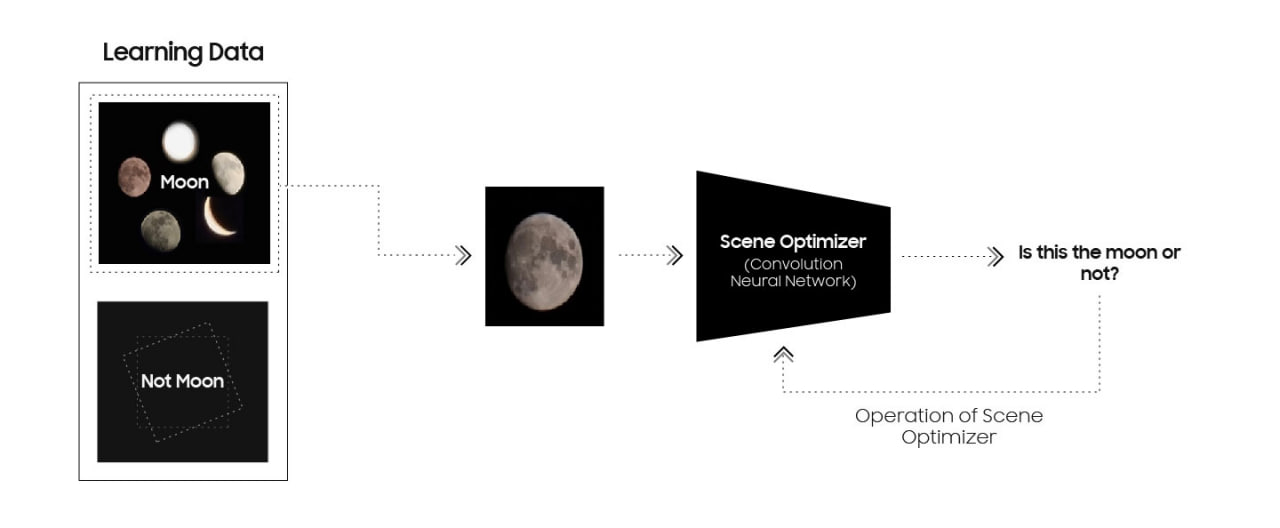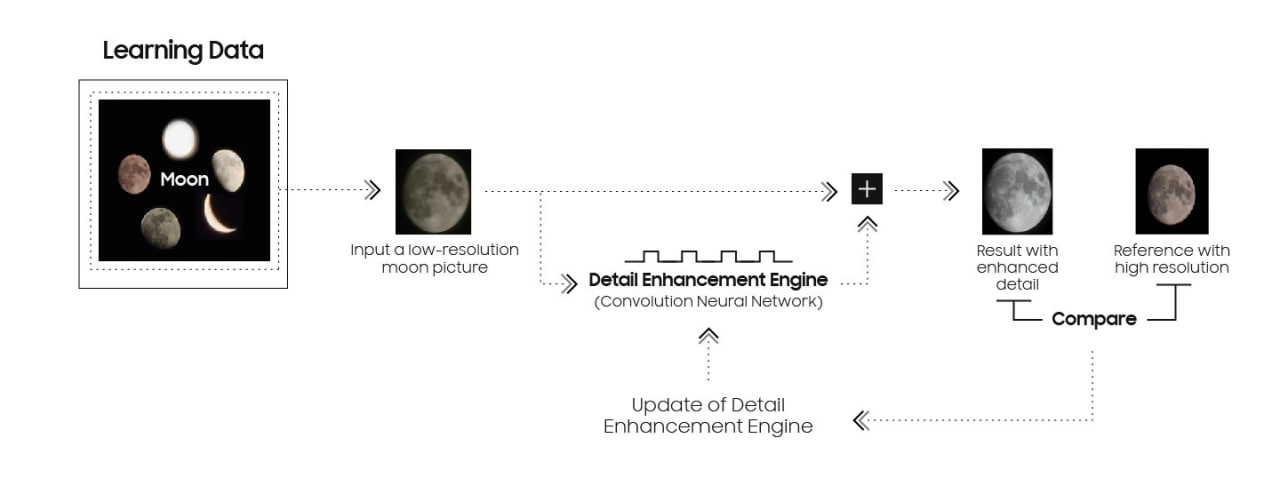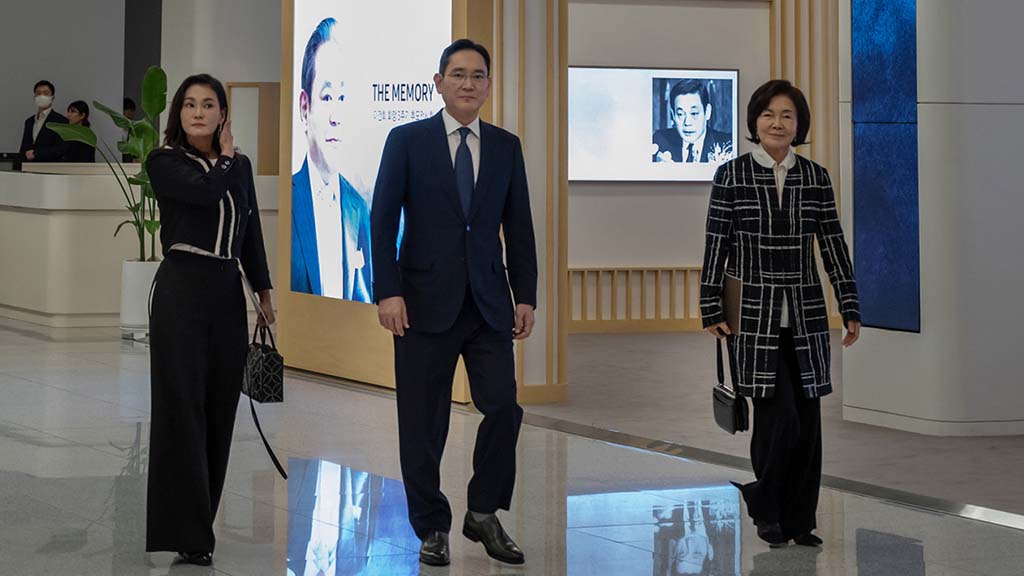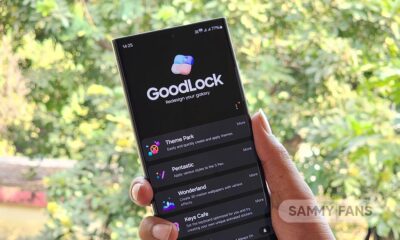News
Samsung reveals AI-based Moon photo detection system

Amid “fake” Moon controversy, Samsung shared an explanation of the AI-powered Moon photo detection system it has used since the Galaxy S21. The company also revealed that users can take a natural shot of the Moon by turning off the Scene Optimizer feature.
Starting the Galaxy S21 series, Samsung applied the AI-based Scene Optimizer feature in the Galaxy Camera app. Using deep learning and AI, this feature upscales the Moon shot and adds further details with processing to deliver a crispy and vibrant shot in Space Zoom.
“Samsung continues to improve Scene Optimizer to reduce any potential confusion that may occur between the act of taking a picture of the real moon and an image of the moon.” Said Samsung.
The Korean tech giant explains, if you have Scene Optimizer turned on, AI detects when you’re taking a clear photo of the Moon at 25X zoom or above. As soon as the camera detects the Moon, the technology lowers the brightness, and captures multiple frames (to produce a bright, low-noise picture).
Later, the AI-based feature uses a neural network to enhance the detail using a high-resolution reference image for comparison. The company also cited that the feature will not work if you either take a snapshot of the obscured Moon or use an image that clearly wasn’t taken on Earth.

“If users wish to take a picture without the support of AI, users can easily deactivate Scene Optimizer by heading to: Camera → Camera Settings → Scene Optimizer → Off“
Samsung may have felt explanation necessary during huge fake criticism of its pro-grade camera technology. A Reddit user shared his experience of experimenting with Moon shot using a Galaxy smartphone, which created critical controversy against Samsung.
With Scene Optimizer turned on, the Reddit user took a shot of a download and blurred image of the Moon, displayed on the monitor. The feature detected the appearance of the Moon and added details and sharpness to the shot to make it crispy as it does in real shots.
Naturally, anyone will call this kind of experience cheating but the reality is that Samsung revealed this technology after the release of the Galaxy S21 series. AI and machine learning technologies are being used in almost all aspects of the tech industry, and if a camera using it, it should not be any controversy.
Samsung AI deep learning for Moon detection:


The Brightness Control Process:




News
Forbes: Samsung’s Jay Y. Lee is the richest Korean in 2024

Samsung’s executive chairman Jay Y. Lee (Lee Jae-yong in Korean) topped the Forbes 2024 Richest Korean list for the first time. On April 17, Forbes revealed that the Samsung boss is the richest in South Korea, with his assets increasing by $3.5 billion, bringing his total net worth to $11.5 billion.
Thanks to a rise in Samsung’s stocks, Samsung’s Lee jumped to the top of the Forbes 2024 Richest Korean list. Notably, the company’s stocks significantly hiked after the revelation that it’s developing high-bandwidth memory chips used in AI computing for NVIDIA.
Forbes 2023 Richest Korean, Kim Byung-ju, slipped to second this year with assets worth $9.7 billion. The third place went to Seo Jung-jin, honorary chairman of Celltrion, with assets of $7.5 billion.
Cho Jung-ho, chairman of Meritz Financial Group, ranked fourth with $6.2 billion, and Chung Mong-koo, honorary chairman of Hyundai Motor Group, was fifth with $4.6 billion.

Stay up-to-date on Samsung Galaxy, One UI & Tech Stuffs by following Sammy Fans on X/Twitter. You can also discover the latest news, polls, reviews, and new features for Samsung & Google Apps, Galaxy Phones, and the One UI/Android operating system.
Do you like this post? Kindly, let us know on X/Twitter: we love hearing your feedback! If you prefer using other social platforms besides X, follow/join us on Google News, Facebook, and Telegram.
News
Samsung builds AI-focussed Advanced Processor Lab in the US
Samsung established an AI chip design-dedicated Advanced Processor Lab in Silicon Valley, US. Formerly known as the Advanced Institute of Technology, Samsung’s SAIT is said to have formed the new Lab to strengthen its AI chip R&D in the US.
BusinessKorea reports that the new Samsung Advanced Processor Lab to focus on developing next-gen AI semiconductor design assets in the US. The assets are said to be focused on the RISC-V area, which serves as a foundational design asset for semiconductor chip design.
Samsung’s initiative with RISC-V is interpreted as a move towards technological independence. Therefore, the company is expanding its R&D organization in Silicon Valley, aiming to enhance design capabilities to disrupt the market currently dominated by NVIDIA.
Amid the booming AI era, the market of advanced semiconductors is also expanding. Samsung has completed the development of its Mach-1 AI semiconductor and supplied prototypes to global firms including Korea’s Naver. The company has also started the development of Mach-2.
Under the CHIPS Act, Samsung received huge subsidies to boost investment in the US. It’s worth noting that the Biden govt awarded a 12% subsidy of Samsung’s total investment, which is significantly higher than Intel and TSMC’s subsidy.
Stay up-to-date on Samsung Galaxy, One UI & Tech Stuffs by following Sammy Fans on X/Twitter. You can also discover the latest news, polls, reviews, and new features for Samsung & Google Apps, Galaxy Phones, and the One UI/Android operating system.
Do you like this post? Kindly, let us know on X/Twitter: we love hearing your feedback! If you prefer using other social platforms besides X, follow/join us on Google News, Facebook, and Telegram.
News
Samsung Galaxy S25’s 3nm Exynos 2500 to beat Snapdragon 8 Gen 4 in power efficiency

Samsung’s first 3nm Exynos 2500 chip could outpace Snapdragon 8 Gen 4 in power efficiency. Both chipsets will power the next-gen Galaxy flagships, scheduled for an early 2025 launch. Recent input suggests that Exynos is returning as a tough rival to Snapdragon.
The Exynos 2500 will be made on Samsung’s 2nd-gen 3nm process technology. The S24’s Exynos 2400 chipset impressed the industry with significant improvements over its predecessor. The company appears to be leveling up the game next year.
Thanks to the cutting-edge process node, Samsung’s next Exynos could finally surpass its Snapdragon counterpart in power efficiency. The company may utilize its advanced FOWLP in the Exynos 2500 to make it run at higher clock speeds at the same power consumption level.
Qualcomm is facing power efficiency concerns with its recent Snapdragon chips. Due to reduced efficiency, phone makers are forced to bring up to 5000mAh battery. Samsung apparently seized this opportunity to bring back its in-house Exynos back to the contest.
Stay up-to-date on Samsung Galaxy, One UI & Tech Stuffs by following Sammy Fans on X/Twitter. You can also discover the latest news, polls, reviews, and new features for Samsung & Google Apps, Galaxy Phones, and the One UI/Android operating system.
Do you like this post? Kindly, let us know on X/Twitter: we love hearing your feedback! If you prefer using other social platforms besides X, follow/join us on Google News, Facebook, and Telegram.










